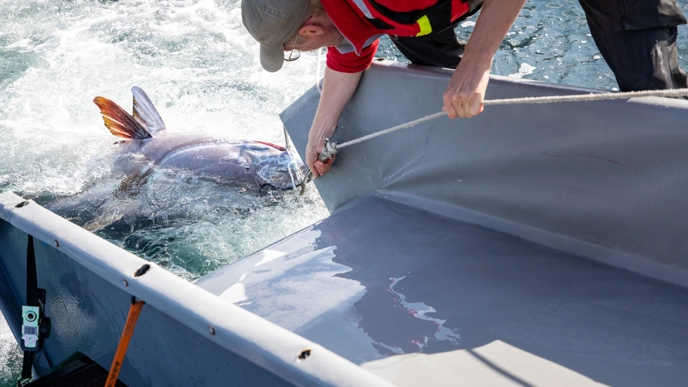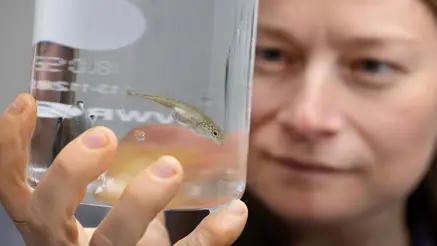
RESEARCH GROUP
Subject area Aquatic Ecology
Updated: May 2025
Group members
- Anders Alanärä
- Michael Bertram
- Aneesh Bose
- Daniel Cerveny
- Petter Lundberg
- Erin Mccallum
- Maria Myrstener
- Karin A Nilsson
- Åsa Widén
- Eva-Lotta Blom
- Jack Brand
- Tomas Brodin
- Sara Nicoline Grønlund
- Gustav Hellström
- Annika Holmgren
- Johan Leander
- Kjell Leonardsson
- Lea Lovin
- James Losee
- Jake Martin
- Marcus Michelangeli
- Fredrik Olajos
- Daniel Palm
- Natalia Sandoval Herrera
- Carl Tamario
- Jörgen Wiklund
- Gunnar Öhlund
Related researchprojects
- Fish farming in the North
- Environmental effects of escaped farmed fish on natural fish fauna – a case study in Lake Storsjön
- Lake food web responses to variation in land use practices across environmental gradients
- Threats to Arctic charr - species interactions and climate change
- The structure of complex animal societies
- Effects of ecological niche construction on life history and mating patterns
- Identifying and quantifying chemical threats to the species of “Darwin’s Dreamponds”
Related research topics
Within the subject area Aquatic Ecology, we study the ecology of aquatic ecosystems and their inhabitants and how they are affected by their ever-changing environment.
Overfishing, hydropower, eutrophication, new invasive species, environmental pollutants, and climate change are taking a toll on our aquatic ecosystems. Several species are threatened, some critically. We are working to generate new knowledge that can contribute to finding solutions to these problems. Tomas Brodin is the subject area leader.
Our research is centred around four interconnected themes
News about our research
-
SLU launches large-scale fish tracking – aiming to provide new insights about fish in the Baltic Sea
SLU has deployed 80 acoustic receivers along two lines in the Baltic Sea. By listening for signals from tagged fish, the receivers will reveal migration routes and uncover new insights on life beneath the waves. This is important for both research and management of fish in the Baltic Sea. -
Pharmaceutical pollution affects migration in Atlantic salmon
Young salmon exposed to pharmaceutical pollution change their behaviour. They prefer to swim alone rather than in shoals and take greater risks during the vital migration from river to sea. This is the result of a unique new study conducted at the Swedish University of Agricultural Sciences, SLU. -
SLU researcher recognized as "rising star" in environmental research
Michael Bertram, Assistant Professor at the Swedish University of Agricultural Sciences, has been named the 2024 Rising Star in Environmental Research. Behind the award are the scientific journal ACS Environmental Au and the prestigious organization American Chemical Society.
